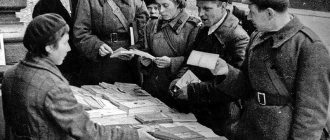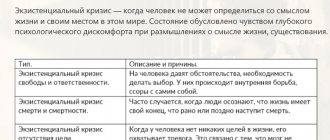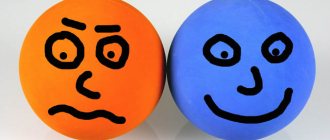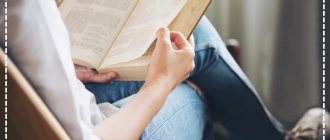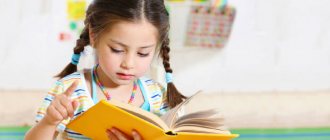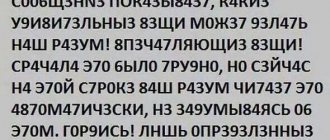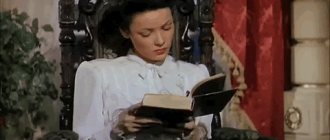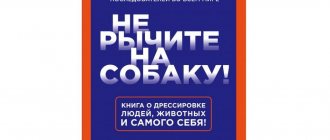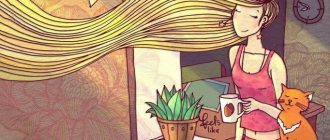Adapted translation of Melissa Chu's article on how to improve your reading quality.
The nature of the book has evolved. Society and technology have become different. Under the influence of a new way of life, the approach to reading has changed. For better or for worse?
Today, the same information can be presented in a variety of formats. When it comes to exactly how we should read, opinions differ.
What value does reading have for us?
It doesn't matter whether you prefer fiction or whether you prefer scientific information. Any information has undeniable value, be it a detailed description of research in the field of military equipment, or a biography of a creative genius filled with romanticism. As a rule, the greatest benefit comes from reading literature related to a person’s profession or specialty.
Being able to read correctly is very important, because the volume and quality of information we absorb directly affects our personal growth. But the invaluable value of reading has many other manifestations! Let's remember together the benefits that reading books brings to each of us:
Reading strengthens your memory. The more time a person spends reading books, the easier and faster he remembers any information. In a research experiment by the American Neurological Academy, which involved about 300 elderly volunteers, it was found that reading slows down the decline in memory caused by aging by more than 33%.
Books make us happier. This is exactly the conclusion that scientists from the University of Liverpool came to. After surveying more than 4,000 people, they found that people who devote their free time to reading have good self-esteem, easily overcome life's obstacles and are distinguished by bright positive thinking.
Books develop intelligence. On this topic, professors from King's College London and the University of Edinburgh conducted an experiment to prove that reading directly affects a person's personal development and improves analytical abilities.
Literature teaches us to think broadly. Books open doors for us to other fantasy worlds, giving birth in our minds to various pictures, characters and plots that we could not even imagine. By regularly indulging in reading, we push the boundaries of the usual, remove the shackles from our imagination. Thinking outside the box is a good skill that comes in handy in a situation that requires special intelligence.
Books broaden your horizons. Thanks to the huge variety of genres: history and science fiction, horror and adventure, detective stories and humor, books are an immense storehouse of the most diverse and valuable knowledge.
Each of us is capable of developing these genius sides and amazing qualities! However, such changes are possible only if we know how to read books correctly. Reading should not be aimless, just for show. We must move into the plot, immerse ourselves in the author’s intentions, feel all the experiences and joys described on the pages of the book. Let's move on.
Get acquainted with literature of different genres
Teachers and parents have been talking about the benefits of reading since elementary school. This idea is also supported by the famous inventor, creator of Tesla cars, billionaire Elon Musk. According to the entrepreneur, reading allowed him to achieve tremendous success in life and business.
This activity not only enriches our inner world, but also:
- develops intelligence and creativity;
- broadens the mind;
- improves memory;
- promotes the development of analytical thinking;
- increases vocabulary;
- allows you to correctly form and express your thoughts.
When choosing literature to read, self-development specialist Vlad Makeev advises not to limit yourself to one genre. Science fiction novels, biographies of famous people, economic works of Karl Marx, and materials on the history of rocket fuel will also be useful.
Reading books of different genres provides diversified personality development, affects empathy, analyticalness, imagination, etc.
Classification of reading methods
In his research work of 1940, M. Adler, an American philosopher, identified and described in detail 4 ways of reading:
- Elementary. The simplest way, which does not require skills higher than those acquired in school. We simply read the text, correctly and easily perceive its meaning, and clearly follow the outcome of the plot.
- Inspection. The reader quickly scans the page with his eyes - from the beginning to the very end, “pulling out” the most important points. This option is useful for those who regularly have to work with a huge pile of educational or work material.
- Analytical. The reader's goal is to thoroughly study the material. We immerse ourselves in the text, thoughtfully “walking” along the page. Important additional notes, deciphering unclear words and expressions - these are the basics of analytical reading.
- Research. The reader is completely immersed in a specific topic, using 2 or more sources at once to refute, confirm or supplement facts.
Knowledge of this classification of reading methods is necessary to understand that different books are suitable for different reading methods. Always keep this in mind when starting a new book - try to determine which reading method will be most suitable for this book. This is the first step to learning how to read books correctly. Let's move on.
Tips to make reading more productive and enjoyable
Learning to read books correctly is not difficult. You just need to focus on the text, push away from reality and completely switch to the power of the written lines. But to immerse yourself in the essence and understand the meaning of what was written easier, you can use the following simple techniques:
Remember the subtext
Modern readers really don't know how to read books correctly. The proof is the fact that most people take novels and everything described in them literally. It is important to always remember the subtext left by the author. This can change the idea of the plot, and will also open up new facets and hidden meanings not previously noticed.
The subtext is hidden in the following:
- weather, season - weather conditions often express the feelings of characters, and seasons can have a huge symbol of the purpose of writing a novel or partially express a hidden meaning;
- the actions of the characters - the author can thus show the real world, drawing a parallel, for example, with politics;
- violence – in many works has a social or cultural meaning;
- geography - it can act in a unique role, revealing a whole separate topic, denoting a symbol, or showing the influence of the environment on the characters;
- salvation of the hero - many authors show the rebirth of the hero or a sharp change in his views by saving himself from death, for example, falling into a river and being saved, and sometimes the hero is killed, which also says a lot;
- the stigma of characters - physical disabilities can express symbols of human moral or psychological problems.
Always try to see the subtext.
Choose each book responsibly
You shouldn't read everything you can get your hands on. Before you start reading, read reviews and reviews, carefully study the content, make sure that on the pages of the publication you will find exactly what you like. So, in a couple of minutes you can build an idea about the book, understand whether it is worth your attention and whether you will be interested in reading it. Believe me, by selecting only worthwhile materials from a pile of designer stucco, you will save a lot of time, which can be spent on more exciting and useful materials. Stick to only quality literature.
Keep up with the times
Great books are not only interconnected. We must not forget that they were written in a certain sequence, which must be taken into account during the reading process. It is obvious that the later author was influenced by the predecessor writer. Reading a book by an earlier author first will help you understand a book written later.
Reading books in their relationships and in chronological order is the basic rule of extended reading.
[…] There is one limitation in applying all these rules, which you might already have guessed. I have repeatedly emphasized that their goal is to help you read the entire
.
At least that's the main goal. It would be a mistake to use these rules primarily to read passages out of context. You cannot learn to read by devoting fifteen minutes a day to a book, as it is written in the reference book for the Harvard Classics. The Harvard Business Review Classics series of books, which includes the best articles from the Harvard Business Review magazine.— Approx.
T& P
The point is not that fifteen minutes a day is not enough, but that you should not read little by little, as the guide recommends. On the Five-Foot Shelf The unofficial name of the Harvard Classics literary series, which includes 418 works of world literature recognized as the foundation of liberal arts education in the United States. The books were chosen by Dr. Charles Eliot, President of Harvard University.— Approx. T&P
You can find many great books, but among them there are also quite banal works. In most cases, the texts of the books in this series are published in full, but sometimes there are simply large excerpts. But no one recommends studying the book in its entirety or reading any part of it. Therefore, you are encouraged to collect some nectar there, smell some honey here. Great, but this will make you a literary butterfly, not an experienced reader.
For example, today you will read six pages of the Autobiography of Benjamin Franklin, tomorrow - eleven pages of the early poems of Milton, and the day after tomorrow - ten pages of Cicero's treatise On Friendship. Next, you will study eight pages of Hamilton from the Federalist Papers, then fifteen pages of notes from Edmund Burke, and another twelve pages from Rousseau's Essay on Inequality. The only thing that will determine the sequence of your reading in this case is the historical connection between any passage and a specific day of the week. But it is hardly wise to rely only on the calendar when choosing books.
The passages are too short for serious reading instruction. In addition, their sequence does not allow one to feel the integrity of the proposed selection or understand one passage in the context of another. The Harvard Classics reading plan makes great books as inaccessible as self-selected college courses. Perhaps this plan was designed to honor Dr. Eliot, the founding father of multiple choice education and the Five Foot Shelf series of literature. In any case, "The Five Foot Shelf" is a perfect example of what not to do if we want to save our brains from St. Vitus's dance. A nervous illness involving anxiety and an excessive amount of involuntary, uncoordinated movements. — Approx. T&P
.
Pursue Specific Goals
Many of us flip through the pages of a book completely aimlessly. But in order to learn to read literature correctly, you need to set a number of goals for yourself. Think in advance what exactly interests you, what question would you like to answer? What benefits would you like to get from the book? Perhaps by reading a novel you are pursuing a solution to a specific dilemma? Then you must focus all your attention as much as possible, try not to miss a single line. Keep your goal in mind until you finish reading the book.
Don't forget to take stock
Reading a book correctly means organizing the information received into shelves in your head. Mentally write a report on what you read, highlighting the most important: “What did I read?”, “What happened?”, “What caused this outcome?”, “What did the events that happened teach me and were they interesting?”, “Do I agree?” Am I with the author’s point of view?”, “What conclusions can I draw?”
Practice your skills regularly
Try to read every day. This “ritual” should become as routine for you as cooking. Read, delve into the essence of the idea, immerse yourself in the book. Soon you will see for yourself how your life will begin to change for the better! You will learn to concentrate on the reading process without being distracted by anything else. Your horizons will become much richer, your speech will be more representative. And all kinds of life’s adversities will no longer frighten you. If you want to learn how to train yourself to constantly read books, read this fascinating article.
How to Read Effectively
Can we read? Read for real, as brilliant scientists and brilliant writers did? The answer to this question is simple. If you are not a brilliant scientist or a brilliant writer, then this article is for you. The development of the Internet has taught us to process large amounts of information quickly and superficially. Often we skim over the text, picking out only the main ideas, believing that we are comprehending the truth. Then you have to be surprised that after a while the book is perceived as a completely new text. So how should you read in order to reach the “ceiling” in understanding the book and remember information as productively as possible? Let's explore the process of getting the most out of your reading experience. Read more…
6
Re-read unclear points
If you come across difficult moments while reading, do not dwell on them. Continue reading the book in the way you are accustomed to, without going into complex words, metaphors and sayings. But don't forget to tag them. When the book is completely read, return to the puzzling passage and give it maximum attention. Use additional sources, re-read the controversial or unclear point several more times, use all your logic. You must study the material thoroughly, understand it as accurately and correctly as the author himself understood it. There should not be a word left in the book whose message is not clear to you. Don’t be lazy to work through the material, even if it takes a lot of time. Otherwise, you will never learn to perceive literature correctly.
How to start reading a lot
Reading books is one of the best ways to spend time. The book has amazing power and is able to transport the reader to another reality. The book makes us experience a lot of emotions and gain new impressions, changes our mood and makes our heart skip a beat or beat even harder. The book enlightens us and gives us new information. And how nice it would be if we could read at any time, absorbing hundreds of new pages. For all book lovers and bibliophiles who suffer from a lack of time to read interesting literature, we have prepared some practical tips that can correct the current state of affairs. Read more…
10
Share your emotions from what you read
The best way to formulate your opinion is to write down your thoughts. Sit down, drink tea and carefully analyze the plot of the book , evaluate the usefulness of the information, remember the impressions that washed over you after reading the work. Highlight the most useful thoughts.
If you feel ready, then feel free to start writing a review. In the modern world, almost any social network is suitable for this. It's great if you have your own personal blog. When writing, be sure to use your favorite quotes from the book, wording, and valuable thoughts. Perhaps previously read literature will come to your aid, with which you can draw a parallel.
Sharing your thoughts with other readers is a very rewarding experience. You can discuss together a detail that worries you, or find an answer to a nagging question.
Training
Friends, the tips in this article will definitely help you improve your reading efficiency. But if you want to make a real breakthrough - increase your reading speed several times, develop attention and improve memory - sign up for the Speed Reading course from Vikium - a proven and reliable service for developing abilities. This course will help you:
- Activate brain activity
- Master the technique of instant concentration
- Increase your reading speed several times
- Develop the skill of voluntary attention
- Improve peripheral vision
- Develop perception functions
- Increase memory capacity
You can:
- Read an entire book without leaving the shelf in a bookstore
- Prepare for a presentation on your way to work
- Notice footnotes in small print
- Prepare for exams and tests faster
- Have more free time
- Be one step ahead of competitors
The course includes:
- Trainers for developing reading speed
- Texts to determine the speed and level of reading comprehension
- Exercises to develop attention
- Exercises to develop memory capacity
To personally see the effectiveness of the training, you can take 1 lesson for free right now.
Master speed reading
If you want to read not only correctly, but also a lot, master accelerated reading of books. Remember that speed reading is aimed not only at increasing the amount of information consumed, but also at its better assimilation. Using this skill, a person learns to quickly perceive material and remember it.
To develop speed reading skills:
- Don't say the words to yourself. Internal monologue slows down reading.
- Read in phrases or lines. The brain perceives the whole picture, so it is not necessary to split up information. Use your peripheral vision to capture entire lines with your gaze. In this case, it is better to focus your gaze in the center of the line.
- Don't reread the words. Returning to an unknown word slows down reading. When practicing speed reading, stay alert and focused. To stay on track, use your finger or a ruler to keep track.
- Use a timer to monitor your progress.
- Set a goal and practice often.
Reading books is the easiest way to gain useful knowledge in any area of life. Read the works thoughtfully and slowly. Think about, analyze and put into practice the information received. This approach to reading will allow you to improve your personal and professional skills and achieve success in life.
Original article: https://www.nur.kz/family/self-realization/1908488-kak-pravilno-chitat-knigi-podborka-sovetov/
